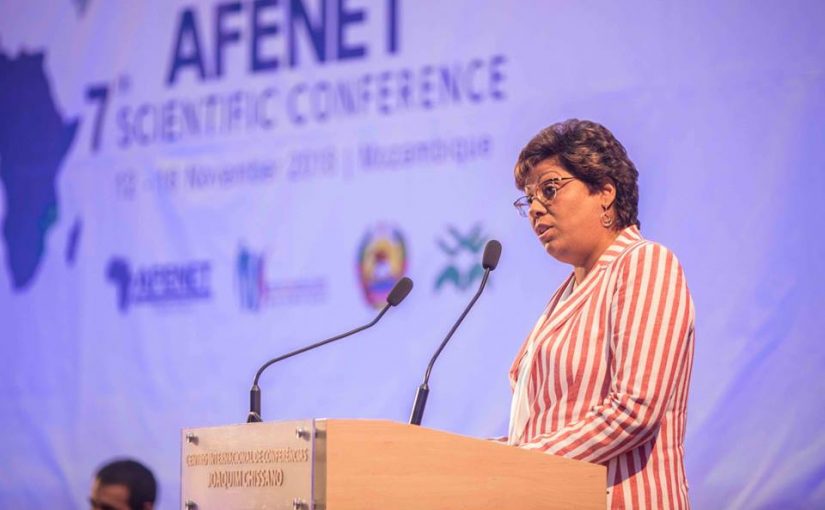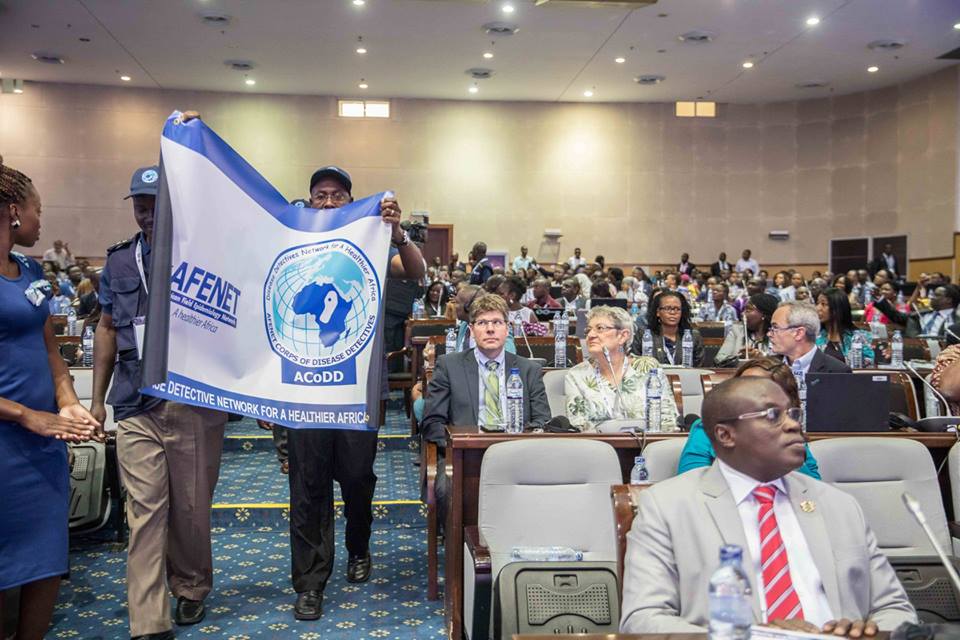Mozambique receives two million doses of BCG vaccine
Mozambique builds capacity to respond to epidemics

Photos: African Field Epidemiology Network / Facebook
A laboratory-based epidemiology programme has been under development since 2010 in Mozambique, with 46 senior epidemiologists and 180 basic and intermediate technicians trained to respond to epidemics in the country.
This information was shared by the Minister of Health, Nazira Abdula, at the opening of the 3rd AFENET Ministerial Round Table (MRT), a standing forum of the 7th Scientific Conference of the African Field Epidemiology Network (AFENET) that brings together Ministers of Health from African Countries to discuss public health workforce development towards advancing the cause of public health in Africa. This year’s MRT was jointly organised by the Ministry of Health of Mozambique, AFENET and the Africa Centres for Disease Control and Prevention (Af-CDC, an agency of the African Union).

Minister Abdula said that the number of people assigned to the project is still insufficient, which is why the Ministry of Health would continue to train more staff to respond to demand and improve the health and well-being of citizens.
The head of the Health Ministry said that the training and retention of field and laboratory epidemiologists should be a priority for building sustainable capacities to detect and respond to health threats on the continent.
The lack of qualified staff in the area of epidemiology is a problem in almost all of Africa, Mafuta Tshimanga, Director of AFENET’s Board of Directors, said. The challenges facing the continent in controlling these diseases required coordinated, innovative and supportive responses from all countries, as they face complex border-crossing epidemics.

“Building resilience in our health systems should not wait for the next epidemic. This work should be perpetual and involve the provision of financial resources for national priorities, the consolidation of our institutions, as well as the training of human resources with the necessary capacities to deal with the current and future challenges,” noted Nazira Abdula.
The development of human resources, as well as the definition of the challenges and priorities for the construction of resilient and sustainable health systems was the focus of the discussions of the 30 ministers meeting in Maputo yesterday.

At the end of the meeting, ministers released a document called the “Maputo Declaration”, which outlines the paths to be taken to strengthen public health in Africa.
The 7th AFENET Scientific Conference, which ends Friday in the Mozambican capital, runs under the motto “Building Sustainable and Resilient Health Systems in Africa through Training in Field Epidemiology”, and is being held in a Portuguese-speaking country and in Southern Africa for the first time.
The event brings together more than 500 experts from African countries in the areas of health, agriculture, fisheries, environment and tourism, graduates of field epidemiology training programmes as well as representatives from regional authorities and international health partners, with the aim of sharing experiences and discussing issues that affect public health in Africa.

About the AFENET Conference
The African Field Epidemiology Network (AFENET) in collaboration with Mozambique’s National Institute of Health and the Mozambique Field Epidemiology and Laboratory Training Program are organising the 7th AFENET Scientific Conference.
The Conference is scheduled for 12-16 November 2018 at the Joaquim Chissano Conference Centre, Maputo, Mozambique.
Residents and graduates of field epidemiology training programs (frontline, intermediate and advanced) are invited to submit abstracts (in English only) for consideration.
About AFENET
The African Field Epidemiology Network (AFENET) was established in 2005 as a non-profit organisation and networking alliance of African Field Epidemiology (and Laboratory) Training Programs (FELTPs), and other applied epidemiology training programs. AFENET is dedicated to helping ministries of Health in Africa build strong, effective, and sustainable programs with capacity to improve public health systems partnering with global public health experts. The network’s goal is to strengthen field epidemiology and public health laboratory capacity to contribute effectively to addressing epidemics and other major public health problems in Africa.
MEMBER PROGRAMS
AFENET operates in 31 African countries: Angola, Benin, Botswana, Burundi, Burkina Faso, Cameroon, Cote d’Ivoire, Democratic Republic of Congo, Ethiopia, Gambia, Ghana, Guinea Bissau, Guinea Conakry, Kenya, Liberia, Mali, Mauritania, Mozambique, Namibia, Niger, Nigeria, Rwanda, Senegal, Sierra Leone, South Africa, South Sudan, Tanzania, Togo, Uganda, Zambia, and Zimbabwe.
@DrJayVarma from @AfricaCDC at the @AFENETAfrica 7th Scientific Conference: The partnership with AFENET has been very essential to the development of Africa CDC. #transformingphs @JNkengasong @PromesseCKaniki @PressZambia @Dottienjagi pic.twitter.com/hXr7F4o3UL
— Zambia National Public Health Institute (@ZMPublicHealth) November 12, 2018












Leave a Reply
Be the First to Comment!
You must be logged in to post a comment.
You must be logged in to post a comment.